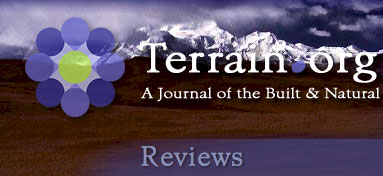
 |
|
|
Listing Angels Simmons B. Buntin reviews Blue Angels by Peter Huggins
This is the abbreviated subject list of poems I’ve yet to write, and that came to me while reading Blue Angels, the latest collection of poetry from Peter Huggins. I read a lot of poetry, and there are many poets who get inside of me and churn the poetry crank of my own rusty mind, but few are as successful as Huggins is with the poems in Blue Angels. This says something about me but more, I think, about the well-honed poems in this excellent book. To wit, the titles of the poems in the book—many of which are poems in and of themselves: Blackberry Winter Fortunately, one doesn’t have to be a writer of poetry (or think one is a writer of poetry) to enjoy the intricacies, subtleties, and strong imagery of the poems in Blue Angels. So I’ll leave the lists—my future poems and these inviting titles—and get on with the review. Like his poetry, Peter Huggins is a bit of a paradox—not in the never finding resolution sense of the term, but rather in the sense that things are not always as they seem, that there is a sort of polarization at both ends; that, in effect, both roads were taken and have converged into one. He has a Master of Fine Arts from the University of Alabama and a law degree from the Cumberland School of Law. He teaches in the English Department at Auburn University, and has also overseen the university’s pre-law program. He is Southern and his poetry is, too. That last sentence may be the most significant. Peter Davison, poetry editor for The Atlantic Monthly, has said that, “American southerners somehow understand more about the truth of the past than northerners do; perhaps because, like William Faulkner, they know that ‘the past is never dead. It's not even past,’ and consequently know how to tell us more-resonant stories.” So it is not only with the poetry of James Dickey, to whom Davison was referring, but also to the poetry of other Southern writers, like Andrew Hudgins and R. T. Smith. And so it is, too, with Peter Huggins: The evening, distilling yellow light, There’s an even stronger linkage here, between the poems of Dickey, Hudgins, Smith, and Huggins: religion. Yet the poems in Blue Angels are not overly religious, not puritan in any sense of the word. They are, rather, more catholic—the Christian references integral like the strong and deep roots of sea oats, keeping the seashore dunes intact, stable: Let the earth work on them like salt, This is “A Map of Orion,” a metaphor really for the book itself: its poetry is like the starry surface of the sky and the watery surface of the lakes, reflective and deep, symbolic and literal. And surrounding all of that: Heaven, or rather the pursuit of Heaven in a body full of life and in places rich in texture. And Heaven’s angels are everywhere, as in “Finding an Angel:” The angel’s in the pines And in the title poem, “Blue Angels:” I love to watch the Blue Angels But what happens when life inevitably becomes life, when the divine does not intervene, or perhaps when it does but not in the right way? That’s when Blue Angels shines, because the real and symbolic struggles the narrators in the poems face are the struggles we all face. And here, now, they help us resolve these challenges. Or at least, they help us keep our wits about us, as in the ending to “Finding an Angel:” I know the angel The stories Blue Angels tells are resonant in the great Southern literary tradition and in their own right. They are stories a son tells to and of his father (the book is dedicated to Huggins’s father), stories a father shares with his wife and children, stories we as readers are fortunate enough to behold through the well-crafted verse and keen sense of place that is the poetry of Peter Huggins.
|
|
||||||||||||||||||||||||||||||||||||||||||||||||||||||||||||||